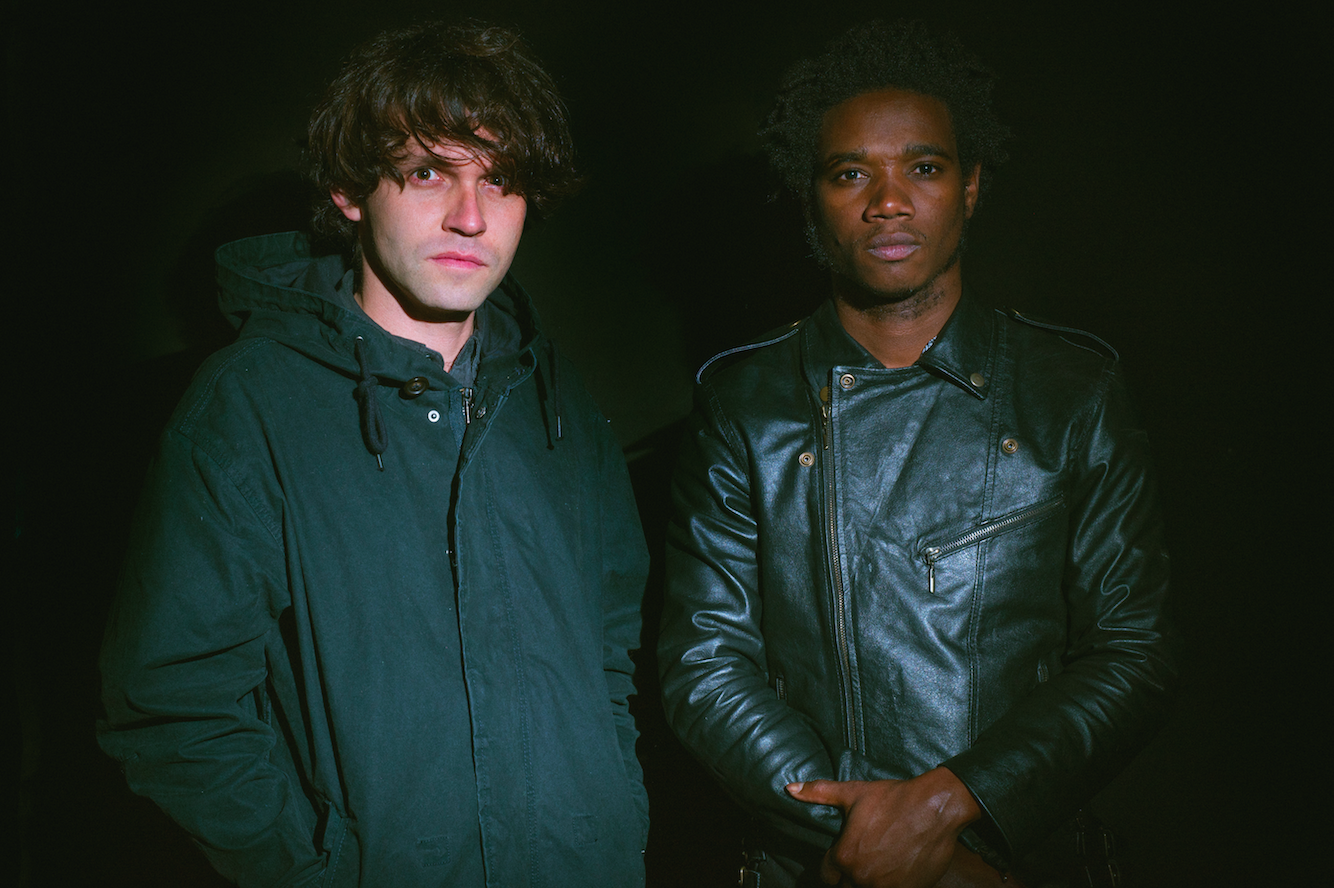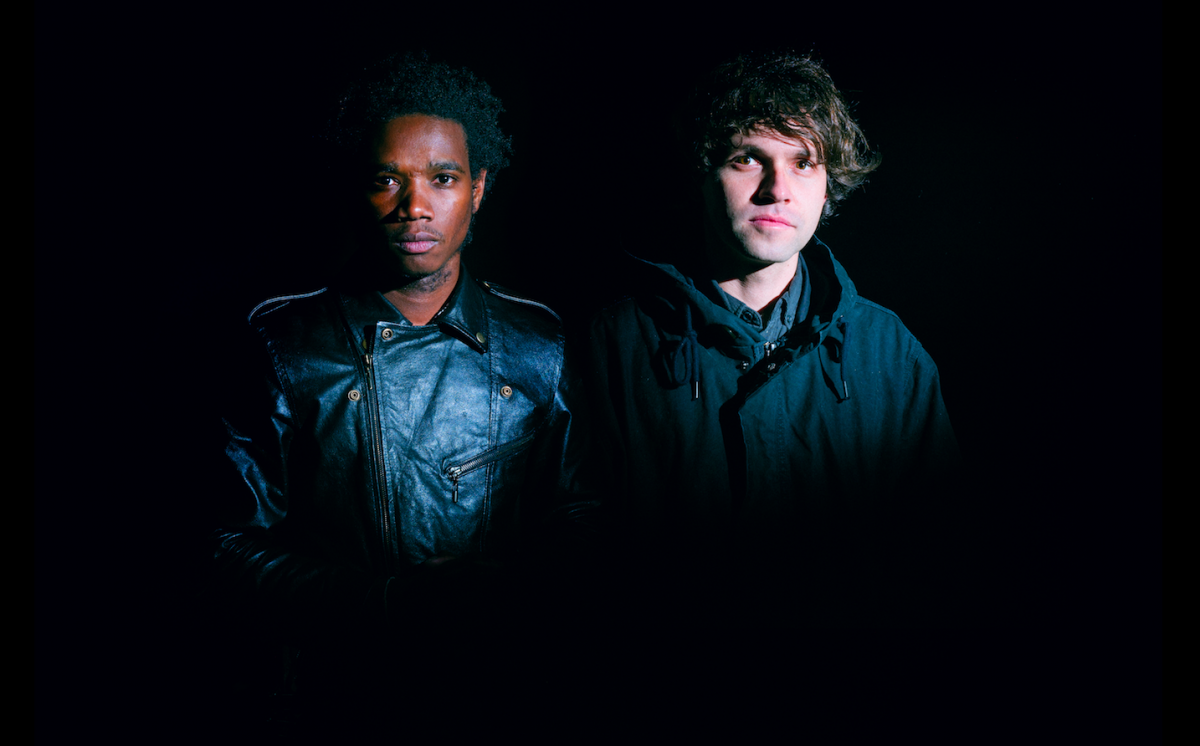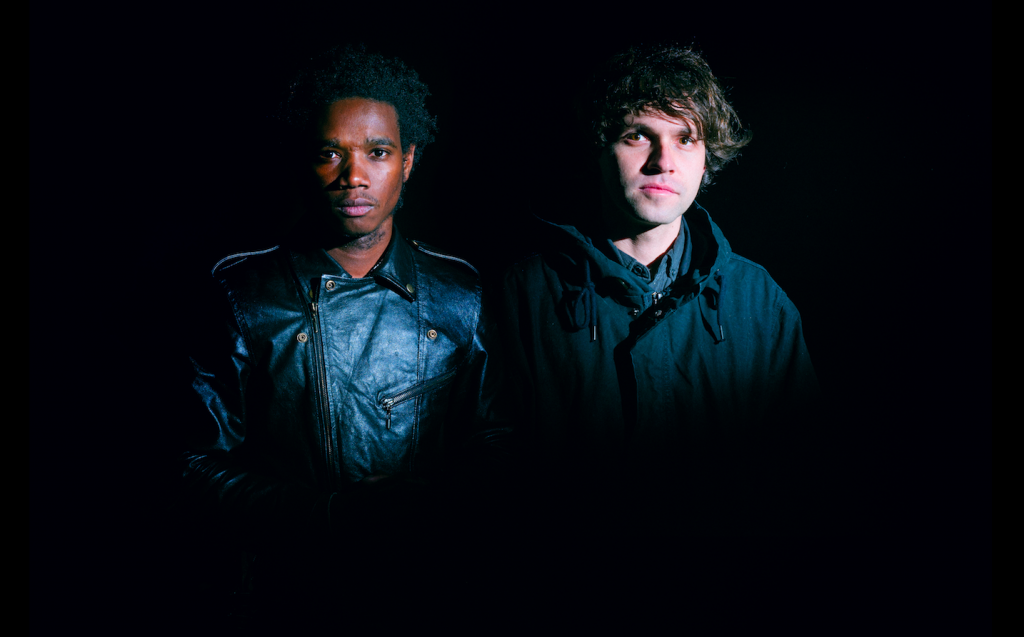“At first, in the jungle, it seems quite noisy, but after some time, you catch the rhythm of it and you can’t get away from it,” Julián Salazar says. He is relating how the sounds of the rainforest are at the heart of his band Mitú‘s music. The Colombian electronic duo consists of Salazar, formerly the guitarist of electro cumbia giants Bomba Estéreo, and percussionist Franklin Tejedor, a master of the rhythmic traditions of his native San Basilio de Palenque. According to Salazar, the project is very much inspired by his experiences exploring the jungles of Colombia as a young man, soaking up their surround-sound chorus of insects, parrots, and monkeys.
“Since then, my whole purpose in life, as a musician, was to try to recreate that sonic landscape I heard when I was in the jungle,” the producer declares. It had to be music that you could dance to, he says, “because that’s the way I felt when I was there.” The Bogotá-based band’s new album Cosmus, their first for stalwart label ZZK Records, captures the totality of the experience Salazar describes – the noise and the rhythm, the cacophony and the symphony – in a way that surpasses their two previous albums, but it also sounds like its true aim was to upend all expectations of what “tropical bass” or electronic music with Afro-Colombian roots sounds like.
Complex, oscillating rhythms, synthetic birdsong, and synth lines like digital gaita flutes subtly reference the jungle and the coasts of Colombia, but often there is no specific traditional music touchstone, such as cumbia, to be found. Some songs like “Pyra” and “Nave” are raw and industrial, with the dark, experimental intensity of Fuck Buttons or Boards of Canada. “Nave” mostly sounds like the very dangerous level of a scrolling video game, but resonant drum sounds and wavering synth notes somehow still evoke la selva.

Tejedor comes from a family of drummers going back generations. He grew up hearing and playing the Afro-Colombian rhythms that San Basilio de Palenque is famous for, bullerengue and lumbalú, and speaking palenquero, the creole language spoken only in the small town. The music of Mitú is steeped in these traditions, but, particularly on Cosmus, it does not manifest itself in a literal, fusionist way. With Salazar translating, Tejedor explains, “All my life, I have listened to my ancestral music. I’ve been playing that throughout my life, but when I am playing with Mitú, I’m trying to do it my own way, not trying to replicate anything.” For both musicians, Mitú is about pushing themselves and their music forward, constantly pursuing the new.
After 10 years as a member of Bomba Estéreo, Salazar left the world-famous group at the beginning of 2017 to focus on Mitú, truly starting a new chapter. He and Tejedor were still working on Cosmus, which took a year and a half to complete. This is in contrast to their 2012 debut Potro, which was recorded in a week, and the follow-up, 2014’s Balnear, which was completed in a month. This time around, they started by throwing out everything they did in the past and developing a new, more thoughtful approach, building songs together over months rather than days. “We spent many hours tweaking knobs to get exactly the sound we wanted to hear in the song,” Salazar says.
All of the knob twiddling paid off in songs like “Fiebre,” the sunny yet haunting lead single which has an unending groove and the plush dimensionality of deep house. With an irresistible vocal hook provided by Teresa Reyes of legendary Palenque band Las Alegres Ambulancias, the track is so complex and enveloping that it is psychedelic, if only because of its pulsating sonic richness. There are quite a few songs like this on the album, providing a counterbalance to the more dissonant and challenging parts.
Those harsh and off-kilter sounds are more a result of hours logged on the road than in the studio. Salazar and Tejedor don’t like for things to get too predictable, and they will experiment with variations on different songs during their live show, sometimes leading to drastically different places than they began. They have no compunction about throwing the audience a rhythmic curveball just as it’s getting into a beat. Messing with expectations on every level seems to be part of the fundamental nature of the band. “We are reinventing ourselves all of the time,” Salazar states. Indeed, and, in the process, they are helping to reinvent a genre.
Check out our exclusive premiere of Mitú’s new album Cosmus above, out August 25 on ZZK Records.




